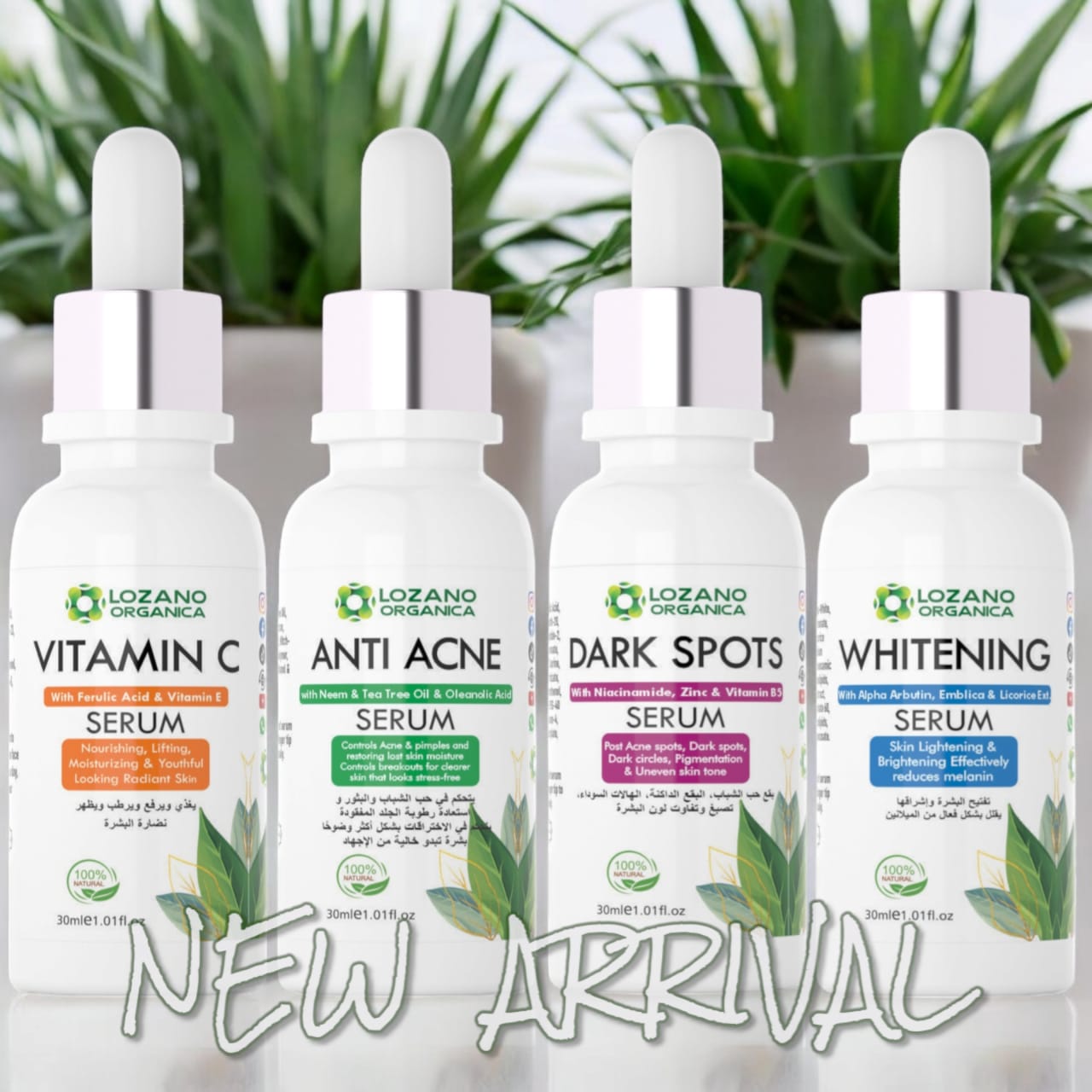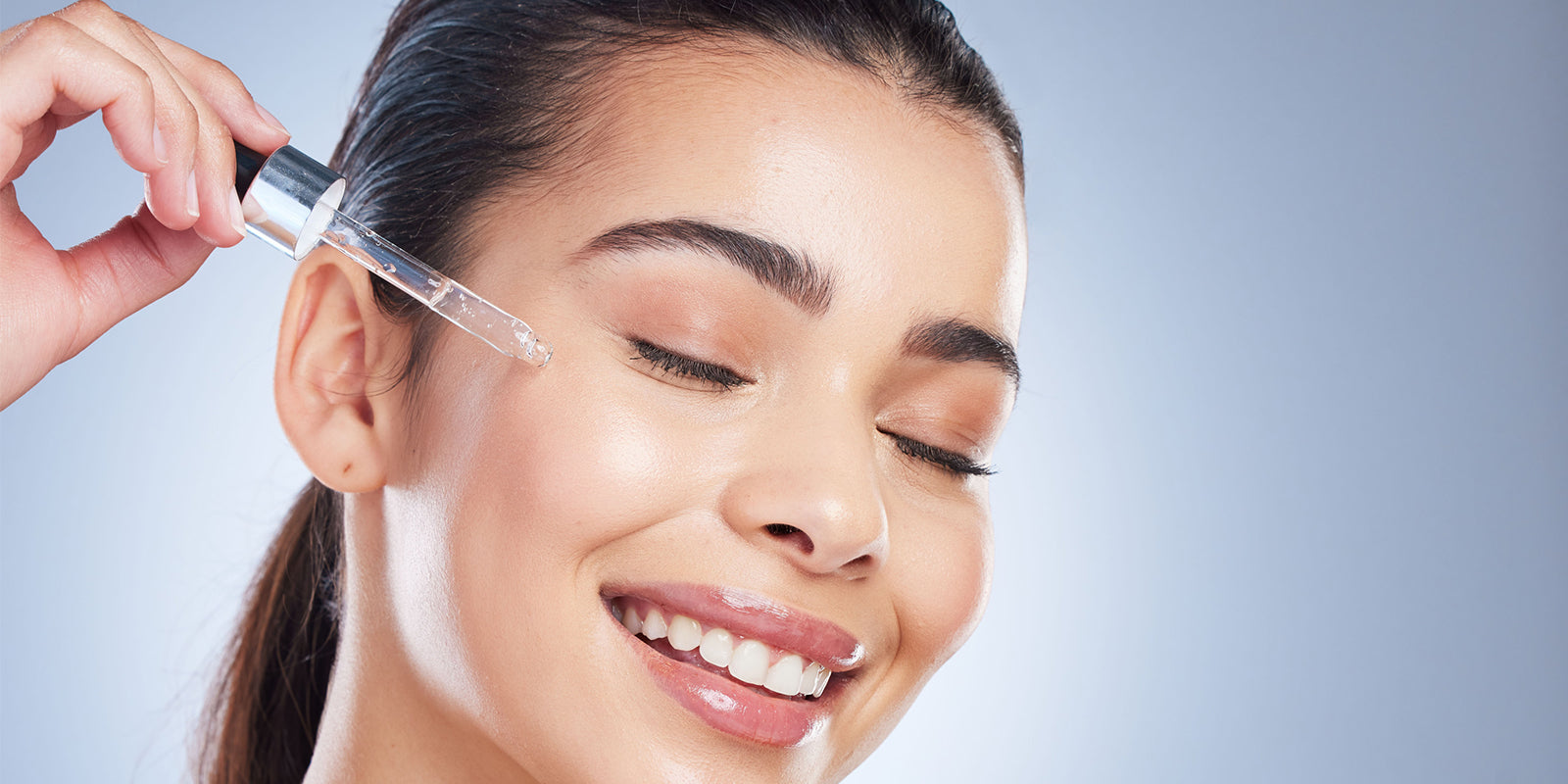Article: The Ultimate Guide to Serums: Why Your Skin Needs This Powerful Skincare Step

The Ultimate Guide to Serums: Why Your Skin Needs This Powerful Skincare Step
What Is a Serum?
At its core, a serum is a lightweight, fast-absorbing liquid that contains a high concentration of active ingredients designed to target specific skin concerns. Unlike moisturizers, which focus on hydrating and locking in moisture, serums are packed with ingredients that treat a range of skin issues, such as wrinkles, dark spots, acne, and dryness.
Serums typically have a thinner texture than creams, which allows the active ingredients to penetrate deeper into the skin, delivering more intense results.
Types of Serums and Their Benefits
There are a variety of serums available, each targeting different skincare concerns. Here are some of the most popular types:
1. Whitening Serums: Achieving a Brighter, Even Complexion
Whitening serums are designed to lighten and brighten the skin, helping to reduce the appearance of hyperpigmentation and uneven skin tone. But before we dive into the details, let’s clarify: whitening does not mean altering skin tone drastically. Instead, these serums focus on fading dark spots, discoloration, and age spots, leaving you with a radiant, even complexion.
Key Ingredients to Look For:
Arbutin: A gentle skin brightener that inhibits melanin production.
Niacinamide (Vitamin B3): Helps with skin tone evenness, reducing redness and pigmentation.
Licorice Extract: Known for its brightening and skin-lightening properties.
Vitamin C: Boosts radiance and fights discoloration.
Why You Need It:
If you have dull, uneven skin or dark spots from sun exposure, acne scars, or aging, a whitening serum can help lighten those areas for a more luminous and uniform complexion. These serums often work best when used consistently over time, and paired with sunscreen, since exposure to the sun can worsen hyperpigmentation
2. Vitamin C Serums: The Brightening Hero
Vitamin C is a powerhouse ingredient in skincare, renowned for its ability to brighten the skin, reduce pigmentation, and protect from environmental damage. It’s an antioxidant that helps protect your skin from free radicals caused by pollution and sun exposure, which in turn keeps your skin looking youthful and radiant.
Why You Need It:
Brightening: Vitamin C reduces the appearance of dark spots, discoloration, and dullness.
Anti-aging: It stimulates collagen production, which helps reduce fine lines and wrinkles.
Sun protection: While it doesn’t replace sunscreen, Vitamin C can help defend against UV damage.
Key Ingredients to Look For:
Ascorbic Acid (Vitamin C): The most potent form of Vitamin C for treating pigmentation and fine lines.
Ferulic Acid: Enhances the stability and effectiveness of Vitamin C.
Tocopherol (Vitamin E): Works alongside Vitamin C to boost its antioxidant effects.
Application Tips:
Use Vitamin C serums in the morning to give your skin a bright, healthy glow while protecting it from daily environmental damage. Make sure to follow with sunscreen, as Vitamin C helps reduce UV damage but doesn’t fully block it.
3. Dark Spot Serums: Targeting Hyperpigmentation
Dark spots (or hyperpigmentation) can be caused by various factors, including acne scars, sun damage, or hormonal changes. Dark spot serums are specially formulated to reduce the appearance of these stubborn spots, restoring a more even skin tone and a smoother complexion.
Key Ingredients to Look For:
Alpha Arbutin: Reduces melanin production and helps lighten dark spots.
Hydroquinone: Often considered one of the most effective ingredients for fading dark spots (although it may be a little stronger and can irritate sensitive skin).
Glycolic Acid: A mild exfoliant that helps fade dark spots by speeding up skin turnover.
Vitamin C: Reduces the appearance of pigmentation while brightening skin tone.
Why You Need It:
If dark spots are your main concern—whether from sun exposure, acne, or aging—this serum should be a part of your skincare arsenal. It works by inhibiting melanin production and accelerating the shedding of damaged skin, revealing a clearer, more even skin tone.
. Anti-Acne Serums: Clearing Breakouts and Preventing Future Pimples
Acne is a frustrating skin condition, and finding the right products to clear up breakouts without causing irritation can be a struggle. Anti-acne serums are designed to target the root causes of acne, from clogged pores to bacterial buildup, and help keep future breakouts at bay.
Key Ingredients to Look For:
Salicylic Acid (BHA): A powerful exfoliant that helps unclog pores, preventing acne from forming.
Retinol (Vitamin A): Speeds up cell turnover, preventing clogged pores and reducing acne marks.
Tea Tree Oil: Known for its antibacterial properties, it helps fight acne-causing bacteria.
Niacinamide: Reduces inflammation and helps with the healing of acne scars.
Benzoyl Peroxide: Kills acne-causing bacteria deep in the pores.
Why You Need It:
Anti-acne serums are perfect for those struggling with acne-prone skin. Not only do they help treat active breakouts, but many also work to prevent new pimples from forming and heal acne scars. These serums can be used daily, but be mindful of ingredients like salicylic acid or retinol, which can cause dryness or irritation if overused.
How to Use These Serums in Your Routine
Using serums effectively is key to seeing results. Here’s a simple routine:
Cleanse your face to remove dirt and makeup.
Tone (optional) to balance skin pH.
Apply your serum(s): Start with the thinnest serum (such as anti-acne or Vitamin C) and layer up to the thickest (like dark spot serums).
Moisturize to lock in hydration.
Sunscreen: Always finish with sunscreen during the day to protect your skin from UV damage and prevent further dark spots.
Final Thoughts: Choosing the Right Serum for You
The right serum can make a big difference in addressing specific skin concerns. Whether you want to brighten dark spots, fight acne, or simply achieve an even complexion, there’s a serum designed to give you the results you're looking for.
For brighter, more even skin tone, try a Vitamin C or whitening serum.
For targeting dark spots, opt for a serum with ingredients like hydroquinone, arbutin, or glycolic acid.
If acne is your concern, look for a serum with salicylic acid, benzoyl peroxide, or retinol.
Consistency is key when using serums. Give it time, and with the right combination of products, you’ll soon be on your way to healthier, glowing skin.





